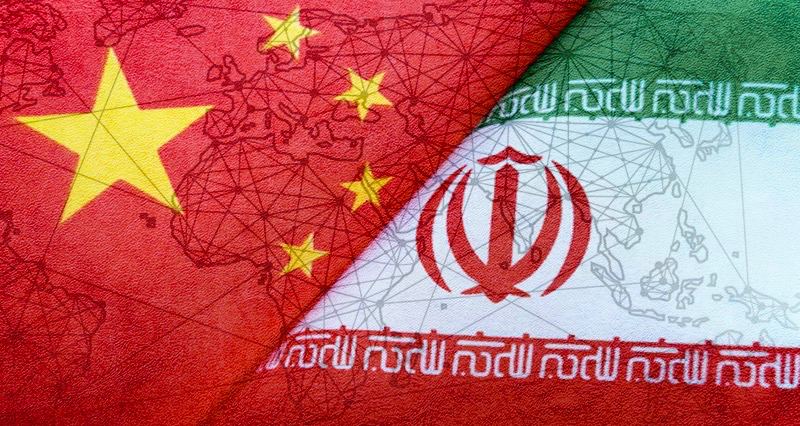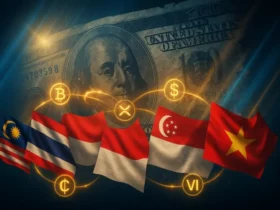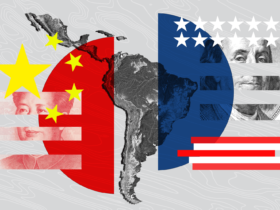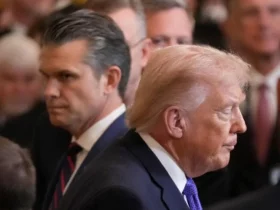In 2023, the People’s Republic of China purchased 91% of the oil produced by Iran. Anxious with that, US President Biden is working on passing a law to impose sanctions on China for its oil purchases from Iran.
Since the COVID-19 pandemic, Iran has transformed into a construction site. What we see is an extraordinary development in the economy. In the defense industry, Iran is making significant progress, similar to Türkiye. The oppressed and developing world is breaking its chains and leaping forward. Here, China has a significant role as a leading country.
China’s contribution is decisive in Iran’s economic leap. During Xi Jinping’s visit to Iran in 2016, the two sides established a comprehensive strategic partnership. Later, they signed the China-Iran 25-Year Cooperation Agreement on March 26, 2021. Following this, economic relations between China and Iran have accelerated over the past three years. With China’s mediation, Iran normalized relations with Saudi Arabia and developed ties with the Arab and Islamic world.
After the Ukraine War, Iran forged an alliance with Russia and improved relations with Azerbaijan. It became a full member of the Shanghai Cooperation Organization and BRICS. Iran has become the most reliable cornerstone in West Asia in the struggle for a multipolar world.
The country that benefited most from Iran’s rapprochement with Gulf countries was Yemen. Here, the war ended. The second-biggest beneficiary was undoubtedly Palestine. The changing power dynamics in West Asia were behind the Operation Al Aqsa Storm on October 7, 2023. Iran’s warning attack against Israel on April 13, 2024, completely changed the old relative weight of power between the opposing sides. It seems this process will lead to the complete expulsion of the US from West Asia.
The Turkish press and so-called “strategy” experts, through the lens of the West, largely ignore Iran’s significant moves that could change global balances.
US bases become its own Achilles heel
According to The Cradle, a significant U.S. political magazine, “Iran’s retaliatory strikes against Israel were not conducted alone. Strategic partners Russia and China have Tehran’s back, and their role in West Asia’s conflict will only grow if the US doesn’t keep Israel in check. (…) Iran’s aerial message this weekend confirmed this in practice: their missile guidance systems used the Chinese Beidou satellite navigation system as well as the Russian GLONASS system. The analysis in The Cradle indicates that Iran’s warning attack on Israel has significant implications in the US. It is predicted that if Iran uses its missile power in a war resulting in the cessation of Middle Eastern oil, the price of oil could rise to $900 per barrel, leading to the collapse of the US banking system.
The dilemma of the US after Iran’s attack is described by former Pentagon analyst Michael Maloof: “We have got some 35 bases that surround Iran, and they thereby become vulnerable. They were meant to be a deterrence. Clearly, deterrence is no longer on the table here. Now they become the American ‘Achilles heel’, because of their vulnerabilities to be attacked.”
Iran-Russia-China joint naval exercises
Iran’s cooperation with China and Russia also has a maritime dimension. On March 11, 2024, Iran, Russia and China launched their fourth annual four-day naval exercises. These drills, which first took place in 2019, are in a highly strategic corridor in the northern Indian Ocean, connecting the Arabian Peninsula to Chinese ports in the Pacific Ocean via the Strait of Malacca.
While the naval exercises enhance power cooperation in maritime security, there is also significant progress in space collaboration. All three countries are making joint efforts to eliminate their dependence on the US’s GPS global positioning satellite system, and to strengthen each other’s systems. In 2021, the Iranian military gained full access to China’s Beidou satellite positioning system, making it the second country in that after Pakistan.
Immediately after Iran became a full member of the Shanghai Cooperation Organization, Defense Minister Brigadier General Mohammad-Reza Ashtiani declared that “the member states of the Shanghai Cooperation Organization share the responsibility of designing a new world order”. Ashtiani called for the establishment of a “Shanghai Maritime Security Belt” to protect trade routes among members.
An alternative to SWIFT is already at hand
And in that period, there came the act that shakes dollar’s worldwide dominance. In February 2023, Moscow and Tehran announced that they had interconnected their national financial messaging services, following their suspension from the Belgium-based Society for Worldwide Interbank Financial Telecommunication (SWIFT). This move keeps bilateral financial exchanges outside the scope of Western sanctions. More importantly, it sets up a mechanism that could be expanded to include other countries in the future.
There is a fitting proverb: “One misfortune is better than a thousand pieces of advice”. The US’s increasingly extreme sanctions are now starting to backfire. Iran began to cooperate more with Asia to strengthen its national economy. China has become Iran’s primary economic partner, 30% of Iran’s foreign trade. This partnership has rendered China the most important source for Iran’s technological and industrial needs.
Because of massive energy needs, ensuring energy security is a fundamental pillar of China’s development strategy. This explains Beijing’s efforts to strengthen economic relations with oil-rich regional countries like Iran and Saudi Arabia.
US’s oil sanctions give opportunities to China
China has devised a way to import Iranian oil that benefits both countries by bypassing the Western financial system and Western-controlled transportation services. This method also provides China’s major international banks to get rid of the US financial sanctions list.
According to an analysis by Energy Press, by purchasing crude oil from embargoed countries like Iran and Russia until 2023, China saved $10 billion.
Iran, Russia and China have created an alternative market for embargoed oil with payments in Chinese currency. The oil is usually transported by tankers operating outside maritime regulations, known as “shadow fleets”.
Kunlun Bank is the main institution making oil trade with Iran. The money for the oil purchased from Iran accumulates in an account at this bank. Iran uses this account to buy both intermediate and consumer goods from China. Iranian Central Bank hold a significant portion of its reserves in yuan.
According to an analysis published in the Tehran Times, an English-language newspaper affiliated with the Iranian government, the China-Iran Strategic Partnership benefits both countries.
Without Iran’s active role, it would be difficult for China to achieve the goals of “reviving the Silk Road”. With its geopolitical position, its role in economic relations through facilities like the ports of Chabahar and Bandar Abbas, and its position on Türkiye’s “Middle Corridor” which is the central Asian transportation route…
Many countries in Central Asia lack access to the sea. Iran, supporting the Organization of Turkic States, provides a kind of “assurance” to Central Asian countries. So Iran is considered one of the routes to open seas within the Belt and Road Initiative.
China has committed to investing $400 billion in Iran over the next 25 years. Another advantage of the 25-year agreement with China is that it will ultimately increase oil and gas production in Iran’s three key fields.
Iran possesses vast oil and natural gas reserves that can aid China’s development, and also serves as a growing market for Chinese goods.
The Tehran Times’ perspective on international politics is realistic: “Now, Iran’s successful experience of cooperation with the Russian Federation in the Syrian crisis by introducing parallel and common interests, can happen in the form of strategic partnership with China.”
In 2014, the government of Liaoyang in northeastern China invited me to their city to discuss relocating cement factories to Türkiye due to overproduction. We visited and were authorized to find a cooperation partner in Türkiye. However, shortly after, they kindly informed us that Türkiye was deemed unsuitable by the central government, and they had signed an agreement to move the two factories to Iran instead.
Attracting Chinese investment to make Türkiye a production and distribution hub is a common discourse in Türkiye. However, this aspiration has not materialized due to our governments’ inability to break free from NATO’s influence. We should learn from Iran’s success in this area.
A strong Iran benefits Türkiye. For Türkiye, which must confront U.S. aggression, having strong and independent neighbors is crucial. So-called nationalism, veiled in sectarian enmity and guided by American interests, leads to a loss of Türkiye’s most reliable allies.
Today, hostility towards Iran in Türkiye primarily serves the interests of Israeli Zionism and American imperialism. A strong Iran is a guarantee of a strong Türkiye. As noted in Kaşgarlı Mahmut’s Divan-ı Lügat-it Türk: “A head without a cap or a Persian without a Turk, both are impossible.”

















Leave a Reply